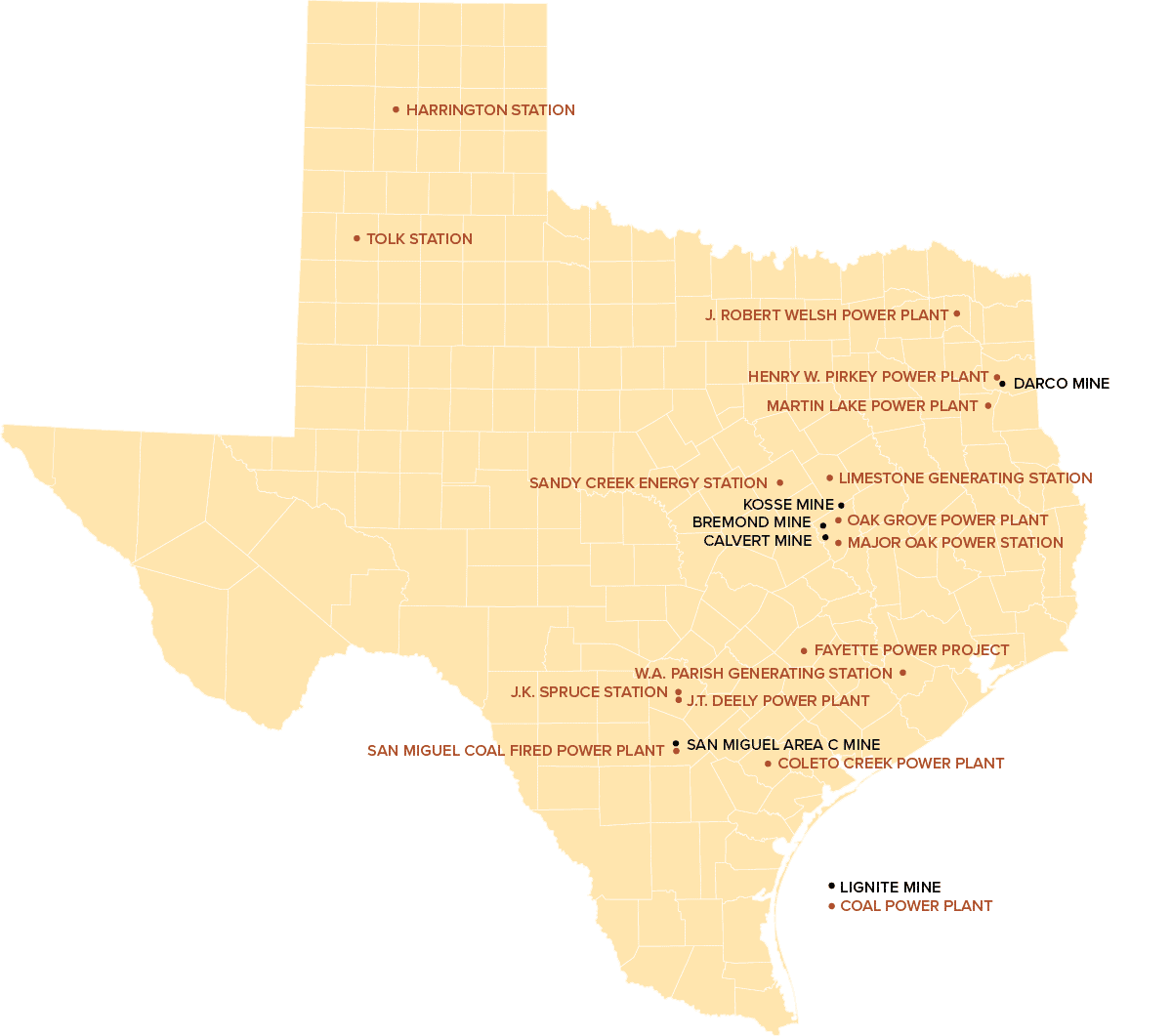Energy is Good for Texas
Texas’ abundant fossil fuels and renewable resources make it a leader in the energy industry. Texas generates 12 percent of the nation’s electricity, making energy production a substantial contributor to the state’s economy.
Coal
In the U.S., coal was the second-largest energy source for electricity generation (behind natural gas) in 2021 at 22 percent and is an important source of energy in Texas.
There are four types of coal: anthracite, bituminous, subbituminous and lignite. In Texas, coal mines produce only lignite, the lowest grade and least carbon-concentrated type of coal.
Energy Produced Using Coal in Texas
Coal provides 10.8 percent of the state’s electric-generating capacity in 2023.
The 15 coal-fired power plants in Texas have a combined, installed capacity of more than 20,000 megawatts (MW) of electricity.
Texas is the second-largest producer of lignite in the U.S., with eight active mines in the state.

Coal Energy Economics in Texas
• In 2022, there were 6,895 coal-fuel and coal-power generation jobs; the average annual wage for coal mining and related support activities jobs was $109,179.
• Coal mining and coal mining support activities contributed approximately $659.5 million to Texas’ gross domestic product in 2021.
Texas coal-fired plants and lignite mines, 2023
View Map Details
| Coal Power Plant | County |
|---|---|
| San Miguel Coal Fired Power Plant | Atascosa |
| J.K. Spruce Station | Bexar |
| J.T. Deely Power Plant | Bexar |
| Fayette Power Project | Fayette |
| W.A. Parish Generating Station | Fort Bend |
| Coleto Creek Power Plant | Goliad |
| Henry W. Pirkey Power Plant | Harrison |
| Tolk Station | Lamb |
| Limestone Generating Station | Limestone |
| Sandy Creek Energy Station | McLennan |
| Harrington Station | Potter |
| Oak Grove Power Plant | Robertson |
| Major Oak Power Station | Robertson |
| Martin Lake Power Plant | Rusk |
| J. Robert Welsh Power Plant | Titus |
| Lignite Mine | County |
|---|---|
| San Miguel Area C Mine | Atascosa |
| Darco Mine | Harrison |
| Sandow Mine | Lee, Milam, Williamson |
| Kosse Mine | Limestone and Robertson |
| Bremond Mine | Robertson |
| Calvert Mine | Robertson |
| Three Oaks Mine | Robertson |
| Oak Hill Mine | Rusk |
Outlook
The use of coal as an energy source for power plants is on the decline in Texas amid the increased costs related to regulatory compliance and the availability of lower-cost fuels. One-third of coal-fired power plants in Texas are scheduled for retirement by 2030. With technology, other fossil fuels and renewable resources are more cost effective. Our role as a leader in the energy economy hinges on our ability to effectively manage and maintain the state’s diverse energy profile.
Sources: Texas Railroad Commission and U.S. Energy Information Administration
This is one in a series of reports the Comptroller has prepared on energy in Texas.
See more information on energy Issues and the Texas economy.
Questions?
If you have any questions or concerns regarding the material on this page, please contact the Comptroller’s Data Analysis and Transparency Division.


